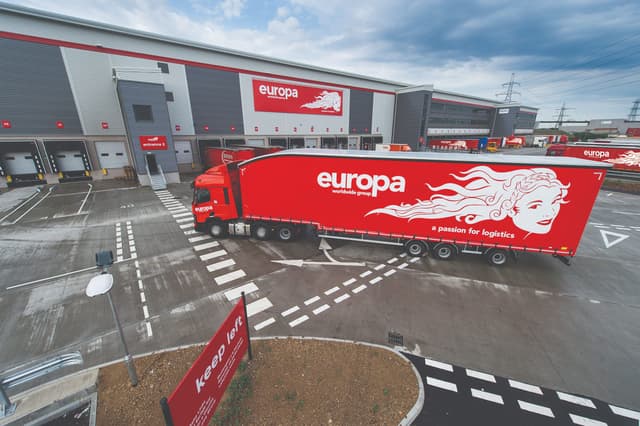According to findings from Oxford Economics, the UK is home to almost five million family businesses. Keeping work in the family is particularly common in industries like building and construction, where skills, expertise and tricks of the trade are passed down through the generations.
Research from Ironmongery Direct reports that as many as four in five builders now work for their family business – more than double that for other trades.
Even after they set down their toolboxes and retire, construction bosses are keen to see their family firms continue. When surveyed, two-thirds (66%) say they would like to see their children carry on their legacy. With a significant proportion of workers aged between 50 and 64 and 25% facing retirement in the next decade, transitioning to the next generation is becoming a pressing issue.
The process of handing over the reins can be delicate, however, requiring consideration for everyone involved. In family business, the boundaries between personal and professional relationships can become blurred.
Changing leadership, therefore, requires discretion and tact to avoid undermining new management whilst respecting the legacy their predecessors have built. If planned and given enough time and care, the process can be rewarding – both emotionally and financially – setting up the business for sustained growth and profitability.
Building a story: Why heritage matters
In family business, a strong heritage story is a major draw. It points to good company values, integrity and lasting reputation, building trust and emotional connection with customers. You’ll often find a stronger sense of pride and responsibility in family firms – every worker has a personal connection and investment in its success, resulting in reduced staff turnover, better work ethic and greater reliability.
When a takeover is announced at a family business, there’s less uncertainty about how it will continue to operate and what that means for customers. Customers feel assured that they remain in safe hands since the ‘new’ ownership already has close ties with the business. Highlighting this unique selling point helps to give customers security throughout the transition and inspires trust in the potential successor.
It is, therefore, key to ensure you’re effectively marketing your family business as such. Build your heritage into your brand. In practical terms, use your website and social media to tell your story. How long have you been operating? Across how many generations? Share photos of the family on the job or on special occasions to build a sense of who you are. Track company milestones and your team’s progress and celebrate them in one-off newsletters or social posts.
Drawing up your plan
Research shows that the number of people working for a family business is increasing, with more than half (52%) of 18 to 24-year-olds doing so compared to a quarter (25%) of over 45s. This suggests the transition from the older generations to the younger is already happening.
But before you set out to do the same, there are a few considerations to take into account. The most crucial is laying a clear plan with set timelines and handover dates. This should include roles and responsibilities in the business during this time, identifying overlap to ensure no toes are stepped on. Doing so will prevent clashes in leadership and flag operational areas that haven’t been accounted for as roles change.
Equally, allowing enough time to confront the challenges you encounter is vital. For example, settling legal or tax concerns or proposed changes to the business in terms of management style, culture or branding. It can also help to give your customers extra notice that change is coming, giving them time to adjust.
Tapping into company knowledge banks
Attention to detail is critical for a smooth transition. For many small businesses, operational and customer details sit deep in the owner’s brain. Handing over customer details, previous job notes, and invoices—and storing this information securely—is necessary not just for taxation and business registration purposes but also for maintaining excellent customer service and avoiding knowledge loss.
Small construction firms have been operating for decades using pen-and-paper or Microsoft Office for administrative tasks. Nevertheless, a change in leadership presents the opportunity to level up and ‘go digital’, inputting all your admin into business management platforms for greater oversight.
Software like this makes it possible to store important information centrally to make it easily accessible to everyone. This enables new business owners to ensure their customer communications are personalised from the off, with key details available at the click of a button rather than buried in old paperwork. It also reduces the need to constantly go back to retirees with questions!
Change up the toolbox with digital solutions
As society moves towards digital, the readiness to embrace digital transformation can make or break a succession. Digitalisation increases your firm’s competitiveness and, therefore, its value. A modernised company is attractive to young, technology-savvy customers and employees alike.
Digitisation can help automate the creation of quotes, appointment reminders, and check-ins on work completed – all of which can enhance the service you offer customers and help them feel cared for.
Digitising staff calendars and having oversight of job progress can help you service more clients on time. This isn’t always easy when emergencies happen requiring immediate attention, but with an overview of team schedules, you can easily shift calendars and respond to customer needs.
Passing on a family business can be a complex but rewarding process. New leadership can rejuvenate a business, especially with new generations of tech-savvy builders at the helm. Embracing digital tools streamlines the transition, enabling greater efficiency and client satisfaction, and in turn, will set the business up for growth and success for generations to come.













